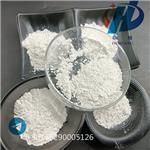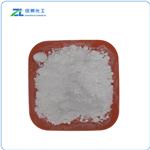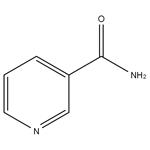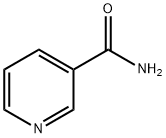Nicotinamide Riboside: Benefits, Side Effects and Dosage
Jan 17,2022
Nicotinamide riboside is a member of the vitamin B3 family, which also includes niacin and niacinamide. It's found in fruits, vegetables, meat, and milk. Nicotinamide riboside is changed in the body to a chemical called NAD+. The body needs NAD+ for many processes to work normally. Low levels can cause health problems. Taking nicotinamide riboside can help raise low NAD+ levels.
Nicotinamide riboside (NR), a newly discovered form of vitamin B3, is getting a lot of attention recently. It’s being touted as an anti-aging vitamin because of its ability to raise NAD+ levels, a coenzyme that plays an important role in many biological processes. So is NR really a more effective form of vitamin B3 for boosting metabolism, cardiovascular health and brain function? Although research on this topic is scant, there are human and animal studies that indicate this vitamins many health benefits, similar to an NAD supplement.
People use nicotinamide riboside for anti-aging effects, high cholesterol, high blood pressure, Alzheimer disease, obesity, and many other purposes, but there is no good scientific evidence to support these uses. Don't confuse nicotinamide riboside with niacin, niacinamide, or NADH. These are all related but are not the same.
Nicotinamide (NAM) at doses far above those recommended for vitamins is suggested to be effective against a wide spectrum of diseases and conditions, including neurological dysfunctions, depression and other psychological disorders, and inflammatory diseases.

Potential Benifits
1. Stimulates NAD+ Metabolism
A recent study conducted at the University of Colorado found that supplementing with nicotinamide riboside effectively stimulates NAD+ metabolism in healthy middle-aged and older adults.
Researchers found that not only was NR supplementation well-tolerated among participants, but it may be beneficial for reducing blood pressure and arterial stiffness too.
NAD+ deficiency is a common central cause of aging and a number of diseases, and studies show that restoring NAD+ levels has great therapeutic and nutritional value.
By increasing NAD+ levels, nicotinamide riboside benefits the following body functions:
metabolic regulation
energy storage
DNA synthesis
2. Improves Exercise Performance
A 2019 study published in the European Journal of Nutrition found that using nicotinamide riboside supplements improved physical performance and decreased oxidative stress in older individuals.
Researchers believe that NR supplementation benefits NAD+ deficient individuals, which explains why it would be more effective in older adults than younger people.
3. Boosts Cognitive Health
As an NAD+ precursor, nicotinamide riboside works to protect brain cells against oxidative stress that can cause age-related brain disorders.
NAD+ also increases the production of PGC-1-alpha, a protein that supports mitochondrial function and reduces the incidence of cognitive dysfunction, according to research published in Neurobiology Aging.
Researchers at the National Institute on Aging in Maryland found that, among mice, NAD+ depletion plays a pivotal role in neuro-inflammation, DNA damage and neuronal degeneration in Alzheimer’s disease.
More research is needed to fully understand how raising NAD+ levels with NR supplementation can promote cognitive health, but the current research looks promising.
4. Reduces the Risk of Cardiovascular Disease
A 2019 study on middle-aged and older adults indicates that using oral NR for six weeks works to decrease systolic blood pressure and arterial stiffness.
High blood pressure and arterial stiffness are both strong predictors of cardiovascular disease, so this study suggests that using nicotinamide riboside may reduce the risk of related morbidity and mortality.
Side Effects
When taken by mouth: Nicotinamide riboside chloride is possibly safe when used in doses up to 300 mg daily. Side effects are usually mild and might include nausea, bloating, and skin problems such as itching and sweating.
Recent increases in public awareness on possible pro-longevity effects of nicotinamide adenine dinucleotide (NAD+) precursors have caused further growth of NAM consumption not only for clinical treatments, but also as a dietary supplement, raising concerns on the safety of its long-term use. However, possible adverse effects and their mechanisms are poorly understood. High-level NAM administration can exert negative effects through multiple routes. For example, NAM by itself inhibits poly(ADP-ribose) polymerases (PARPs), which protect genome integrity. Elevation of the NAD+ pool alters cellular energy metabolism. Meanwhile, high-level NAM alters cellular methyl metabolism and affects methylation of DNA and proteins, leading to changes in cellular transcriptome and proteome. Also, methyl metabolites of NAM, namely methylnicotinamide, are predicted to play roles in certain diseases and conditions.
Dosage
There isn't enough reliable information to know what an appropriate dose of nicotinamide riboside might be. Keep in mind that natural products are not always necessarily safe and dosages can be important. Be sure to follow relevant directions on product labels and consult a healthcare professional before using.
- Related articles
- Related Qustion
- How to synthesize Nicotinamide? Feb 28, 2024
The steps are to dissolve 3-cyanopyridine in alcohol, add water and a catalyst to perform a hydrolysis reaction and obtain nicotinamide through post-processing of the reaction product.
- Topical Pharmacology and Uses in Skin of Nicotinamide Mar 9, 2022
Aging is caused by many different factors such as the loss of deep bone structure and subcutaneous fat, in addition to oxidative skin damage caused by cumulative sun exposure.
- Nicotinamide - Medical Applications and Role in Skin Diseases Mar 9, 2022
Niacinamide, also known as nicotinamide, is an increasingly popular component of topical cosmeceuticals. It has shown a wide variety of benefits such as improving epidermal barrier function and therefore inflammatory dermatoses.
Protocatechuic acid has inhibitory effects on white and Staphylococcus aureus, Streptococcus pneumoniae, Streptococcus A, Haemophilus influenzae, Pseudomonas aeruginosa, Escherichia coli, and Proteus.....
Jan 17,2022APIDibenz[a,h]anthracene is an ‘alternant’ class of polycyclic aromatic hydrocarbons (PAHs) with five fused benzene rings. It has a molecular weight of 278.33, with a melting and boiling point of 266 and 524°C, respectively. It generally exist....
Jan 18,2022Chemical ReagentsNicotinamide
98-92-0You may like
- Nicotinamide
-

- $15.00/ kg
- 2024-04-20
- CAS:98-92-0
- Min. Order: 1kg
- Purity: 99.912%
- Supply Ability: 10ton
- Vitamin B3 Nicotinamide
-

- $200.00 / 1kg
- 2024-04-20
- CAS:98-92-0
- Min. Order: 1kg
- Purity: 99%
- Supply Ability: 20ton
- Nicotinamide
-

- $0.00 / 1kg
- 2024-04-19
- CAS:98-92-0
- Min. Order: 0.10000000149011612kg
- Purity: ≥99%
- Supply Ability: 20tons




